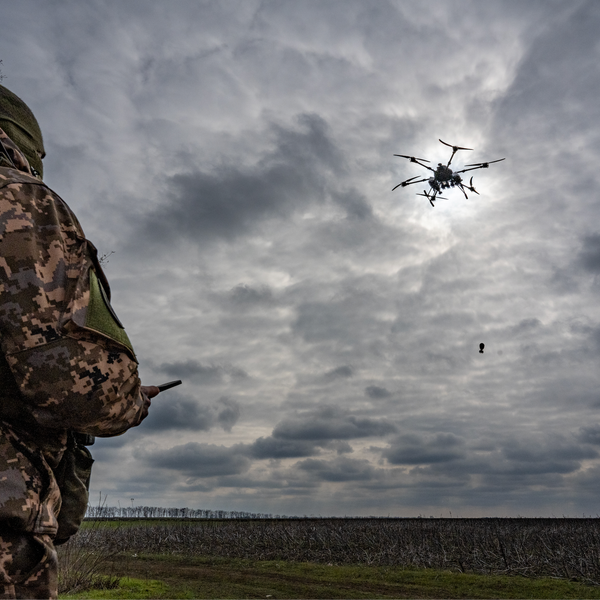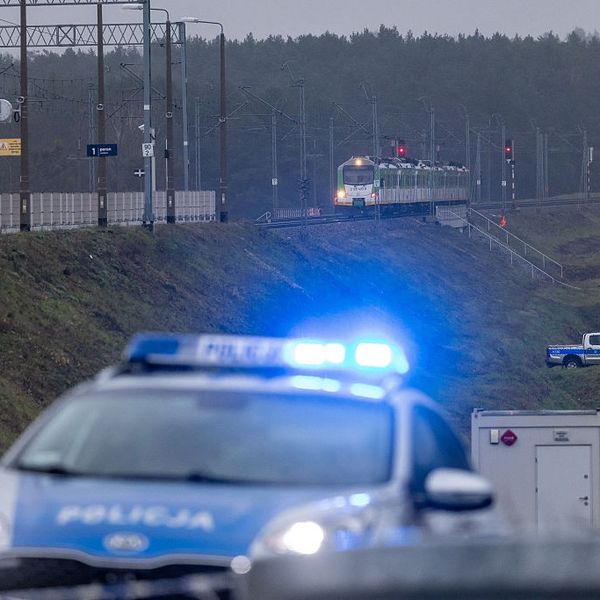Russian opposition leader Alexei Navalny is in a coma after doctors at the German hospital where he is being treated say he was poisoned. Last week, a former Army Green Beret captain was accused of spying for Russia in a relationship that allegedly began decades ago. The Cipher Brief tapped our expert, former senior CIA Officer Dan Hoffman to talk about Russia’s cloak and dagger operations and how they may or may not be changing.
Daniel Hoffman is a former Chief of Station with the CIA. His combined 30 years of distinguished government service included high-level positions not only within the CIA, but also with the U.S. military, U.S. Department of State, and U.S. Department of Commerce. Assignments included tours of duty in the former Soviet Union, Europe, and war zones in both the Middle East and South Asia.
The Cipher Brief: What are Russia's most sought after espionage targets today and why?
Hoffman: Obviously, they can obtain a lot of information through the press and open source, but when it comes to Vladimir Putin, the KGB operative in the Kremlin, it's all about cloak and dagger espionage against our national security, whether it's the national security officials, Department of Defense or the Intelligence community. I think those are certainly among the highest priorities if you're talking about actual clandestine human spying. Because for them it means offensive counterintelligence, it means learning what we're doing to them. Traditionally, it's how they've caught and then been able to arrest those brave Russians who were spying on our behalf. Think of the 1980s when Rick Ames gave up all of our agents and Robert Hanson.
They know they need to recruit inside the CIA, the FBI in particular, in order to steal that information and protect themselves. Putin knows he's vulnerable. He knows that his government is corrupt and that there are plenty of people inside his government who don't like it and are looking for a way out. So that's why they need to erect this massive wall of counterintelligence.
I could certainly see the Special Operations community being a high priority. One of the lessons learned from 9/11 for the Russians was that they needed to build out that capability as well. And we've seen them do that with the Wagner group and they're certainly cognizant of their own offensive collection, but they want to know what we're doing with our JSOC and Special Operations forces. At the same time, they want to try to build something for themselves, so it helps for them to steal what's working or not working for us.
The Cipher Brief: Things are changing when it comes to technology and a dynamic geopolitical situation. When it comes to espionage targets, have Russia’s priorities changed over the years, and how might they change in the future?
Hoffman: I'm not so sure the targets have changed. I just think the means of gaining access to the targets might have changed. Now you can use social media to find people. In our world it's about spotting your targets and then developing them for recruitment, and you can do a lot of that through social media and you can do it with avatars if you wish. So, I think it's less about the targets that have changed and arguably much more about just the tactics in terms of how you go about doing it.
The Cipher Brief: Cipher Brief Expert and former Estonian President Toomas Hendrik Ilves recently tweeted, that “Ricin, Novichok, acetylcholinesterase inhibitors. Things we need to know about today when we talk about Russian foreign policy.” In your mind, what do we need to be concerned about with how Russia is operating today?
Hoffman: In 1978, the KGB used an umbrella laced with ricin to kill Georgi Markov who was a Bulgarian dissident. So, they've been doing this stuff forever and we shouldn't be surprised that Putin resurrects those sorts of nasty KGB tactics because that's where he spent his formative years. But with the attack on Alexei Navalny, they ratcheted up their persecution of him quite a bit. They have imprisoned him, they have inflicted physical harm upon him, denied him freedom of speech and all of those things, but poisoning him to the point where he's in a coma and in critical condition is taking it to another level, and it reflects probably three things going on inside Russia.
The first is that Putin is faced with protests in Khabarovsk, Siberia after he removed the popular governor there who's a LDPR (Liberal Democratic Party of Russia) member, Sergei Furgal. Secondly, he’s concerned with Belarus. There's nothing that scares Vladimir Putin more than a populous uprising in a neighboring state, which could lead potentially to some sort of democratic movement. I mean, his own people would see that as a beacon of hope.
And the third thing is that Putin's own popularity is plummeting because of Russia's economic recession and coronavirus, and concerns about ubiquitous corruption in Russia, which has been the case forever. That's exactly what Navalny was exposing.
Navalny rose to prominence 10 years ago, roughly, with Russia's presidential elections and he's exposed a lot of graft in Russia. I think the decision and the timing to strike at Navalny right now is what really matters. And it should matter here in the United States, because we are in Putin's crosshairs, And if he's upping the ante against his own domestic dissent, keep in mind, he may take greater risks in his efforts to target the United States leading up to and during our presidential election. What scares Putin is democracy and he wants to soil our political process, and he may be feeling that he is in such a more vulnerable state now, for those reasons I explained that he might take more risks.
The Cipher Brief: What worries you the most about US risks as it relates to Russian espionage?
Hoffman: I think that's the question I'd be asking if I were at the CIA right now. I'd be asking "What are all the things that Vladimir Putin could be doing to us?" And of course, there's intelligence collection on that, on the sorts of things he could be doing. My imagination probably isn't good enough to predict all the things that he could do. They relied on Russian bots the last time. Maybe they put actual human beings out there this time to do things for them. But there's a whole host of things and we just have to be on alert. At the end of the day, we've got to collect the strategic counterintelligence on Russia so that we know what the Kremlin's plans and intentions are, whatever they might be. That's what I would take from this. If I were in CIA right now, I'd be saying, "Well okay, this looks like Vladimir Putin is interested in taking a few more risks. What do we got? Let's take a look at what we're seeing from Russia beyond that heightened alert."
Certainly, among the possibilities are more cyber-attacks, more risky ones, potentially. Might they mess with our electric grid? There are a hundred thousand different things they could do that are far more risky. And of course, it is less risky to put one of your own in a coma than it is to strike out at a nation state like the United States. But Putin's game plan has always been when he's in trouble, to create this image that he's the defender of Russia's besieged fortress from the West, and he needs to start something so that we'll respond and he'll be able to say, "Oh, see everyone? This is what's going on here." That's a tired, worn out refrain that you see from Vladimir Putin.
The Cipher Brief: Do you think we're approaching a period where either the Western European nations or the US is going to be forced to respond in a much more vigorous way to Russia?
Hoffman: I think we've responded by closing Russian consulates, we’ve kicked out some Russian officials and sanctioned them. You could argue that we're not really restraining Russia. That there's more to be done. And I think the more to be done part is working with our allies, all of them in Europe, and extending out to Russia's neighbors, not just the Baltic States who are NATO members, but Ukraine and public support for democracy activists in Belarus. We should be doing that. The United States, our ethos, our national security, I mean, it's not just about kinetic attacks against our enemies. It's also about our soft power and the fact that our country is such a beacon of hope and such a defender of human rights. There's a natural tension between respecting another country's territorial integrity and supporting human rights when they're violated. And when human rights are violated, as they're being violated in Belarus, the international community, led by the United States, has every right to defend those people. So, I'd like to see us do more of that and strongly support the democracy activists.
Read more expert-driven national security insights, perspective and analysis in The Cipher Brief












